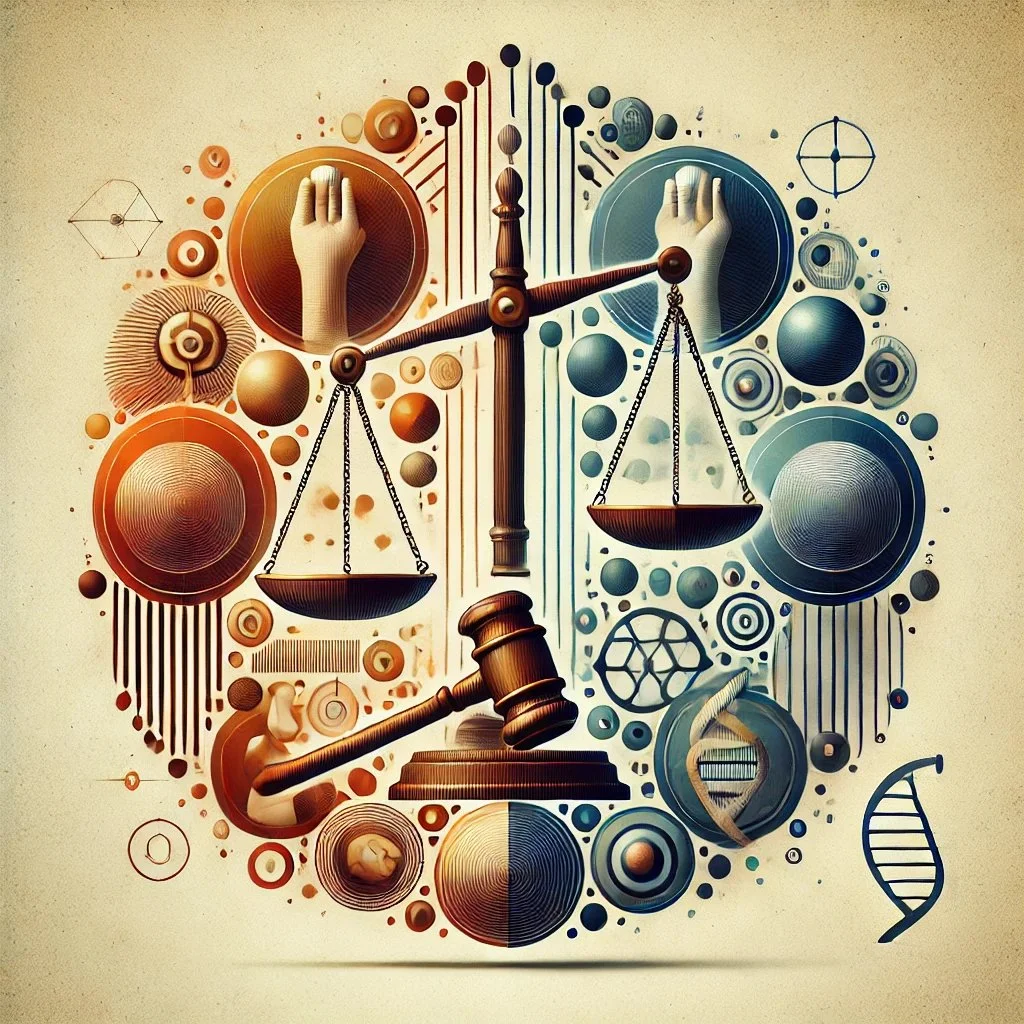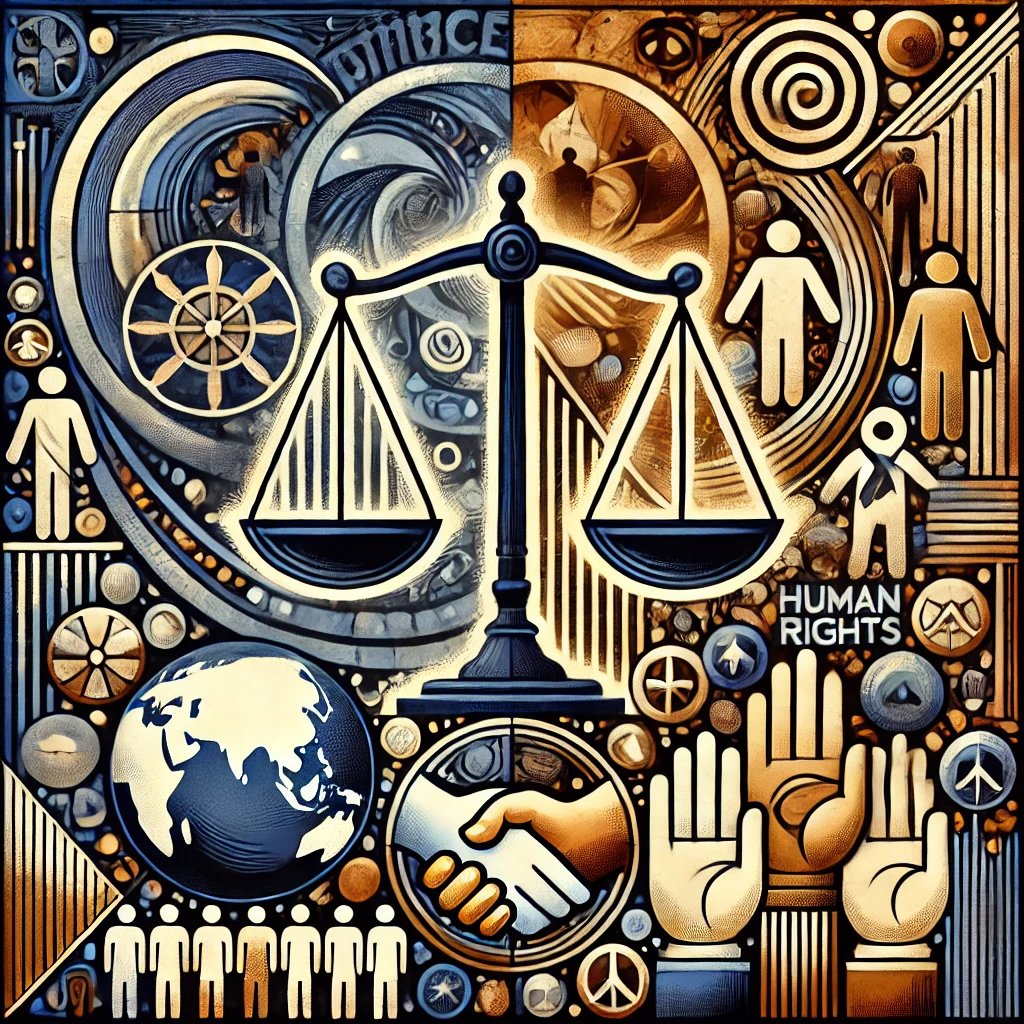Ethics & Rights
Welcome to Ethics & Rights
What is right, and what is wrong? How should we balance individual rights with societal needs? These are the questions at the heart of ethics and human rights. From bioethics to civil liberties, this section will challenge your thinking and guide you through the most pressing moral and ethical debates of our time.
Let’s dive into these topics and explore the moral frameworks that shape our world.
Which ethical or rights-related issue interests you the most?
Ethics & Rights – Introduction
The Ethics & Rights section focuses on fundamental questions surrounding morality, human rights, and the ethical challenges of modern societies. This section covers a broad range of issues, from bioethical dilemmas like euthanasia and genetic engineering to the moral obligations of societies to protect civil liberties and promote social justice. Debates in this area often involve balancing individual rights with collective responsibility and exploring how societies define fairness, freedom, and justice.
In this section, we analyze the ethical implications of controversial policies and decisions, exploring how different ethical frameworks (such as utilitarianism, deontological ethics, and virtue ethics) guide actions and inform rights-based debates. Additionally, this section delves into the moral challenges posed by advances in science, technology, and medicine, as well as the evolving concept of human rights in a globalized world.
1. Bioethics and Healthcare
Key Themes:
Medical Ethics: Debates over euthanasia, assisted suicide, abortion, and life-extension technologies.
Healthcare Access: Ethical issues surrounding universal healthcare, the right to treatment, and how societies allocate medical resources.
Genetic Engineering: Moral questions about genetic modification, cloning, and the potential for “designer babies.”
Content Overview:
The bioethics subtopic covers the ethical implications of advancements in medical science and how societies approach controversial medical decisions. Debates include the right to die (euthanasia and assisted suicide) and the ethics of abortion, which raise questions about bodily autonomy, the definition of life, and societal responsibility in providing reproductive healthcare.
Advancements in genetic engineering and biotechnology introduce profound ethical concerns, such as the potential for eugenics or designer babies, where embryos are modified for specific traits. Additionally, this subtopic explores the moral obligation to provide universal healthcare and ensure equal access to medical treatments regardless of socioeconomic status.
2. Free Speech and Censorship
Key Themes:
Freedom of Speech: The limits of free speech, hate speech laws, and civil liberties in a democratic society.
Censorship in Media: The role of social media platforms in moderating content, balancing free speech with misinformation.
Privacy and Surveillance: Ethical challenges of government and corporate surveillance, balancing security with privacy rights.
Content Overview:
This subtopic explores the ethical boundaries of freedom of speech, focusing on where to draw the line between protecting civil liberties and regulating harmful content. In democratic societies, free speech is essential, but when speech causes harm (e.g., hate speech or misinformation), the balance between free expression and protecting vulnerable communities becomes critical.
Censorship and content moderation by social media platforms are also explored, especially as these platforms try to prevent the spread of dangerous misinformation while respecting free speech. The ethical concerns surrounding privacy in the digital age, with governments and corporations collecting personal data, are also covered, raising questions about the right to privacy in an increasingly surveilled world.
3. Human Rights and Social Justice
Key Themes:
Civil Liberties: Protecting individual rights such as freedom of speech, religion, and assembly.
LGBTQ+ Rights: Moral and ethical debates surrounding LGBTQ+ rights, marriage equality, and anti-discrimination laws.
Disability Rights: Ensuring equitable treatment and access to education, employment, and healthcare for individuals with disabilities.
Refugee and Immigrant Rights: The moral obligations of nations toward refugees and immigrants, including the right to asylum and humane treatment.
Content Overview:
The human rights subtopic addresses the principles that protect individual dignity and freedom, focusing on civil liberties in both democratic and authoritarian regimes. It examines the rights of LGBTQ+ individuals, with a focus on marriage equality, healthcare access, and legal protections from discrimination.
Social justice is another crucial aspect, which includes the protection of disabled individuals and ensuring they have access to education, employment, and healthcare. Ethical debates surrounding refugee and immigrant rights are also key, as nations face moral questions about asylum, integration, and balancing national sovereignty with global responsibilities.
4. Moral Philosophy and Ethical Theories
Key Themes:
Utilitarianism vs. Deontological Ethics: Debates over whether morality is determined by outcomes (utilitarianism) or by adherence to moral rules (deontology).
Virtue Ethics: Focuses on character and the virtues individuals should cultivate to live an ethical life.
Moral Relativism vs. Moral Absolutism: The debate on whether moral values are universal or dependent on cultural context.
Content Overview:
This subtopic delves into moral philosophy, focusing on the debates between utilitarianism (the greatest good for the greatest number) and deontological ethics (adherence to moral rules regardless of consequences).
In contrast, virtue ethics emphasizes developing moral character and virtues, such as honesty and kindness. The debate between moral relativism (where morality is culture-specific) and moral absolutism (where moral values are unchanging and universal) is also explored, raising questions about how societies and individuals define ethical principles.
5. Ethical Issues in Technology
Key Themes:
AI and Automation: The ethical implications of artificial intelligence, especially regarding job displacement, privacy concerns, and decision-making.
Data Privacy and Digital Rights: The responsibility of corporations and governments to protect individual data and ensure transparency.
Biotechnology and Genetic Engineering: The ethical challenges of gene editing, cloning, and human enhancement.
Content Overview:
Rapid advancements in technology raise significant ethical issues, particularly with the use of artificial intelligence (AI) and automation. AI brings moral dilemmas related to job displacement, privacy, and the delegation of critical decisions (such as in healthcare or law enforcement) to machines. The ethical question of data privacy is also addressed, focusing on how to balance technological innovation with the protection of personal data.
The moral challenges of biotechnology and genetic engineering are explored in depth, particularly the potential for human enhancement and the risks associated with creating genetically modified individuals.
Future Topics
This section will expand to cover:
Climate Justice: The ethical responsibility of nations, corporations, and individuals to address climate change, especially concerning vulnerable populations.
Corporate Social Responsibility (CSR): The role of businesses in promoting ethical practices and addressing global inequality and environmental issues.
Technological Ethics: The challenge of regulating emerging technologies like AI, automation, and data mining within ethical boundaries.
What ethical issue caught your attention in Ethics & Rights?
Whether you were intrigued by bioethics, civil liberties, or privacy rights, ethics is full of complex moral dilemmas. Let us help guide your next step in exploring the moral and ethical challenges that shape our society.

